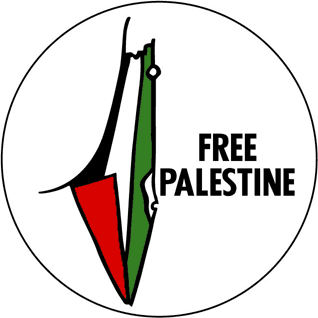Do settlements hinder a peace agreement?
Nevertheless, if I were to use the same personal tone, I would say that everything in me rebels against such reasoning.
No, I have no intention of defending the decision of the Israeli government, neither have I any intention of criticizing it. I’ve never aspired to the role of Prince’s Advisor, and that is why I do not advise my own government, and neither do I advise foreign statesmen. (Horovitz is in a different situation; his voice, as an editor-in-chief of an important media outlet in his country, counts, and he may be listened to.)
I have my opinions, but I’m not so sure about their correctness; however, I have the impression that Horovitz’s reasoning is wrong. This requires a presentation of my own reasoning so that I can look at it more closely.
David Horovitz, in an article headlined “It’s settlements, stupid”, writes in the last paragraph:
“Netanyahu is also right to argue that each time a Sweden promises recognition for Palestine, or a British parliament urges such recognition, they reinforce Palestinian maximalist positions on the parameters of such a state, and thus stave off a successful resolution of Israeli-Palestinian two-state negotiations. But an ever-growing proportion of the international community just doesn’t care about that any more, so fed up is it with the constant expansion of settlements. For how, runs the subtext, can Netanyahu credibly protest against unilateral pro-Palestinian political activity, how can he expect to be heeded, when his Israel is unilaterally remaking the facts on the ground?”
When reading this article from the end we can better see the problem this Israeli journalist grapples with. Israel is giving a pretext to ignore everything that really hinders a peaceful solution of the Palestinian problem. Horovitz writes explicitly that there are not (and probably will not be for a long time) conditions for a two-state solution. The first such missing condition is recognition of Israel’s right to exist, second is demilitarization of both West Bank and Gaza Strip. There is no need to list the remaining conditions, because everything depends on those two.
Horovitz is worried by a turn in international public opinion, or to be more precise, by the escalation of the attitudes hostile to Israel. I have a different name for it: the return of fascism. I’m sick to death of hearing the word “settlements”. Horovitz writes that even people who for years defended Israel are now turning away from it. I have a problem with this, and I would like to say that even people who previously had enough decency not to lie are now starting to look for any pretext in order to join the mendacious multitude.
My attitude toward the settlements is not clear cut. Judea and Samaria as well as East Jerusalem were invaded 1948 by the Jordan army, armed by the British and led by British officers who knew that the aim was the extermination of the Jewish population there. Part of the Jewish inhabitants of the East Jerusalem was murdered and the rest expelled. International public opinion didn’t have any problems with this. Between 1948 and 1967 the so-called West Bank was under Jordanian occupation; Palestinians didn’t have any autonomy then, nobody even hinted at the Palestinian state, nobody was interested in the conditions of Palestinian refugees under an Arab occupation. Western public opinion didn’t have any problems with it. After 1967 Israel offered Gaza to Egypt and control over the West Bank to Jordan. Jordan and the Arab League had a better idea. They preferred Israel to be an occupier of these areas. Israelis dislike being occupiers and, what’s more, they found themselves pressured by international public opinion.
As a result of the preemptive war of 1967 (when the Arab armies were standing ready for attack on all the borders of Israel), the Israeli Army took the Sinai, the Golan Heights, the Gaza Strip, and the West Bank. A plan of settlements on the strategic areas appeared. The government then was a government of the Labor Party headed by Levi Eshkol. This government accepted the plan by Yigal Allon, which envisioned building settlements in East Jerusalem, a settlement of Gush Etzion, and settlements in the Jordan Valley. Those places are of strategic importance for Israel’s defense and were supposed to become (after peace negotiations) a part of Israel. Settlements were also built in the Gaza Strip, the Golan Heights, and in Sinai.
Not a full three months after the Six-Day War, at the end of August 1967, the leaders of eight Arab countries, including Egypt, Syria, and Jordan – countries that lost territory as a result of their aggression against Israel – met in Khartoum and agreed on three fundamental principles of Arab foreign policy: no to peace with Israel; no to recognition of Israel’s right to exist; no to negotiations with Israel.
If Israel hoped for an exchange of captured territories for peace treaties, it immediately got the message that there were no willing takers on the other side. This way, against their will, Israelis became occupiers.
Without any doubt they are the worst occupiers imaginable. They are not emulating the British, who, after all, occupied the empire where the sun never set, and who, to make the occupation easier, invented both barbed wire and concentration camps. They are not emulating the Germans, who invented industrial killing of the residents of occupied countries. Unfortunately, they are not emulating the Americans, who demanded absolute demilitarization, conducted de-Nazification in their sector of occupied Germany, enforced reforms, and tightly controlled the transition to democracy. Equally successful was the American occupation of Japan, where everything also started with full demilitarization and police control of all organizations.
When it came to occupation, Israelis didn’t want to follow the example of the British, nor the Germans, nor the French, nor, unfortunately, the Americans. They invented their own model of occupation, creating enterprises for the occupied society, employing the occupied people according to the same rules and conditions the occupiers enjoyed, and building infrastructure and houses for them.
International public opinion reacted with righteous anger when the occupiers decided to demolish refugee camps and give the refugees a normal life. It was a crime preceding the settlements, and Arab countries contested it hotly. They exercised successful pressure on the U.N., which forced the occupiers to stop such cruelty. And so, instead of living in normal settlements with housing built by Israelis, the descendants of Palestinian refugees in Gaza and on the West Bank are still crowded together in “refugee camps”.
In the mid 70s there arose Gush Emunim, a movement of religious Jews convinced that thanks to God’s intervention Judea and Samaria, the cradle of the Jewish nation, were once more in Jewish hands and should be settled as soon as possible. It was a most awkward movement for consecutive Israeli governments. Some of those settlers were forcibly expelled, but some eventually won and got permission to stay. David Horovitz surely knows all the details that I do not know. I remember my own irritation and questioning why they were allowed to do it. I got different answers, the situation changed with time, part of Israeli society was outraged, Western (mostly left) public opinion recognized it as divine intervention and God’s gift that finally allowed the acceptance of anti-Semitism by polite society again.
Settlements turned out to be the best pretext to divert attention from the still valid three main principles of Arab policy toward Israel. This pretext allowed the claim that if not for the settlements, Arab countries and Palestinians (allegedly having a democratic representation), would acknowledge Israel’s right to exist, would want peace, and would sit down to negotiations.
I understand the Israeli journalist who says, “Do not give them a pretext”. But I’m not an Israeli, I’m not even a Jew, and I cannot agree to pulling the wool over my own eyes. Western hostility toward Israel has nothing to do with the settlements. The settlements could be a subject of discussion if there were any discussion. The condition for discussion is the recognition of Israel’s right to exist, and this right is questioned in the Gaza Strip, in Ramallah, in all capitals of the Arab states, in Tehran, in Stockholm, in London, in Paris, and (less openly) in Washington.
We must not allow ourselves to be fooled. When the Swedish parliament recognizes Palestine, let’s stop babbling about settlements and let’s ask: what Palestine?
We have hundreds, if not thousands, of statements by Palestinian politicians, clerics, and journalists who say publicly that by “Palestine” they mean the territory “from the River to the Sea”. Hundreds of times we’ve heard slogan: “We will not give up one square inch of Palestine”. The logo of Fatah is the map of Israel covered with a keffiyeh—and Fatah is allegedly the most noble, the most moderate, the most state-building part of the Palestinian authorities.
Hamas’s logo is equally clear.
Western politicians know perfectly well what the Arab side means by the word “Palestine” and what Palestine they acknowledge in their parliaments, while talking only about settlements. Settlements are supposed to divert our attention from the fact that they consciously and deliberately are signing up to the slogan about the elimination of the State of Israel, and the settlements serve them only as a veil to justify their actions.
In the picture above, the British consul-general in Jerusalem, Alistair McPhail (left), parading in a scarf with a map of “Palestine” as it is seen by Palestinians, and now also by the parliaments of Sweden and Great Britain. If somebody suggests that the British diplomat was induced to taking this step in August 2014 by an Israeli decision to build inside one of the settlements, it is his right, but I have a different opinion.
When in March 2013 President Obama visited Ramallah, as a good Christian he decided to visit Bethlehem too, and on his route a monumental map of Palestine was hurriedly
This was before the decision about building the settlement that Horovitz mentions, so Obama had, of necessity, to talk about other decisions. The American President said that Palestinians had to recognize the right of Israel to exist and that they should not use the problem of settlements to sabotage negotiations. The emphasis on the problem of settlements was stronger; the pressure for the recognition of Israel was subtle so as not to harm the peace talks.
If I were an Israeli journalist I might write like Horovitz, but I am a Pole with an admixture of Lithuanian obstinacy.
David Horovitz reminds us that during the debate in the British parliament the question of settlements was brought up over 40 times; he does not say how many times the word “demilitarization” was mentioned, or recognition of the right to exist, the conditions for peaceful co-existence. Bringing up settlements without bringing up the right to exist is the recognition of a Palestine as envisioned by Palestinians.
I’ve met with this arrogant opinion by an Israeli: “We will build settlements as long as Palestinians refuse to honestly talk about peace”. Much more often, though, I meet with statements full of anxiety or criticism, like the voice of David Horovitz.
The decisions of parliaments in Sweden and in Great Britain coincide with the international conference in Cairo about aid for the Gaza Strip. At the conference in Cairo they were not discussing the settlements, they were discussing a Marshall Plan for the Gaza Strip. They didn’t call it that; they talked about the horrifying destruction caused by the Israeli bombardment (according to the UN the destruction concerns 5% of Gaza, the rest is untouched; journalists who report this horrifying destruction are living in luxurious hotels and swimming in luxurious swimming pools in the Gaza Strip, and as Palestinian journalists report, the aid for Palestinian victims of the latest war is notoriously stolen by the members of Hamas). As U.S. Secretary of State John Kerry noted, the problem of demilitarization of Hamas was taken off the table. In truth, it was never put on the table by anybody. Putting it on the table could hamper the progress toward peace and the building of two Palestinian states (three, if anybody would like to be exact, because Jordan has a Palestinian majority, but Palestinians there are second and third class citizens).
When in 2005 the Israeli occupier hurriedly and forcefully expelled Israeli settlers from the Gaza Strip in order to leave Gaza totally Judenfrei for those occupied Palestinians, this operation was supervised by Ariel Sharon. The occupier left those settlements in pristine condition and also started to build a seaport. The settlements and infrastructure were destroyed. The Gaza Strip was transformed into a bastion of terrorists, and among those who are debating the settlements nobody is willing to talk about demilitarization. After Sharon’s death I read many reminiscences about this politician written by Western journalists. Not one quoted his words from 1989:
“It had always been one of my convictions that Jews and Arabs could live together. Even as a child it never occurred to me that Jews might someday be living in Israel without Arabs, or separated from Arabs. On the contrary, for me it had always seemed perfectly normal for the two people to live and work side by side. That is the nature of life here and it always will be.... though Israel is a Jewish nation, it is, of course, not only a Jewish nation... I begin with the basic conviction that Jews and Arabs can live together. I have repeated that at every opportunity, not for journalists and not for popular consumption, but because I have never believed differently or thought differently, from my childhood on. I am not afraid of Arabs. I feel I can live with them. I believe I understand their problems. I know that we are both inhabitants of this land, and although the state is Jewish, that does not mean that Arabs should not be full citizens in every sense of the word.”
I understand Horovitz’s worry, even anger, but I do not have any illusions about what is standing in the way of peace in the Middle East: Israeli settlements or Western parliaments and Western public opinion, so horribly alarmed by those settlements.
www.listyznaszegosadu.pl/brunatna-fala/osiedla-utrudniaja-zawarcie-pokoju
Translated by Małgorzata Koraszewska and Sarah Lawson



